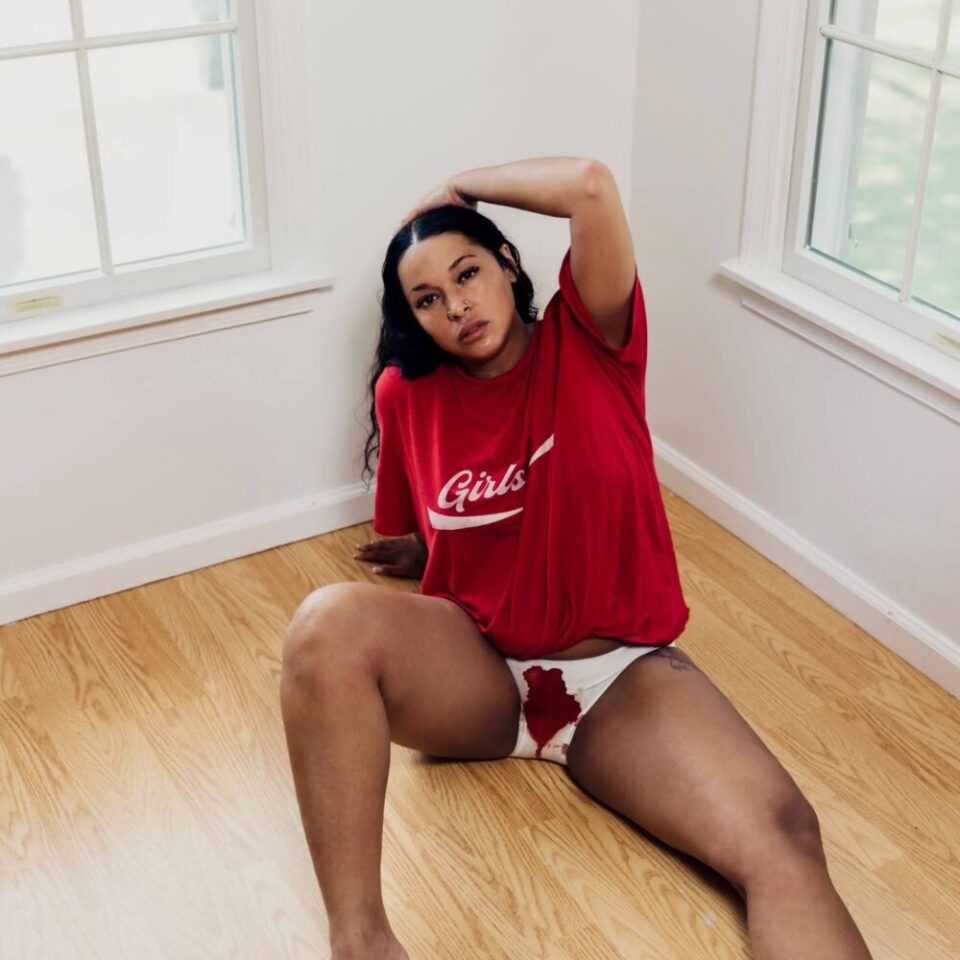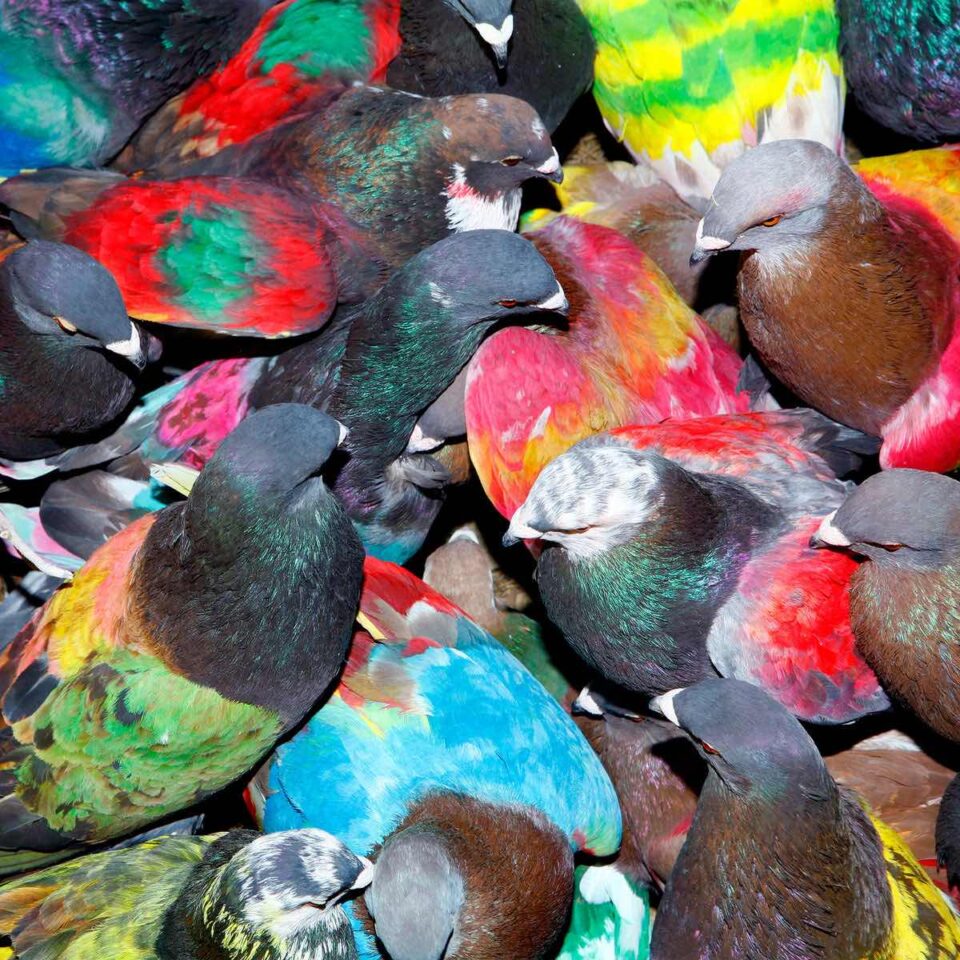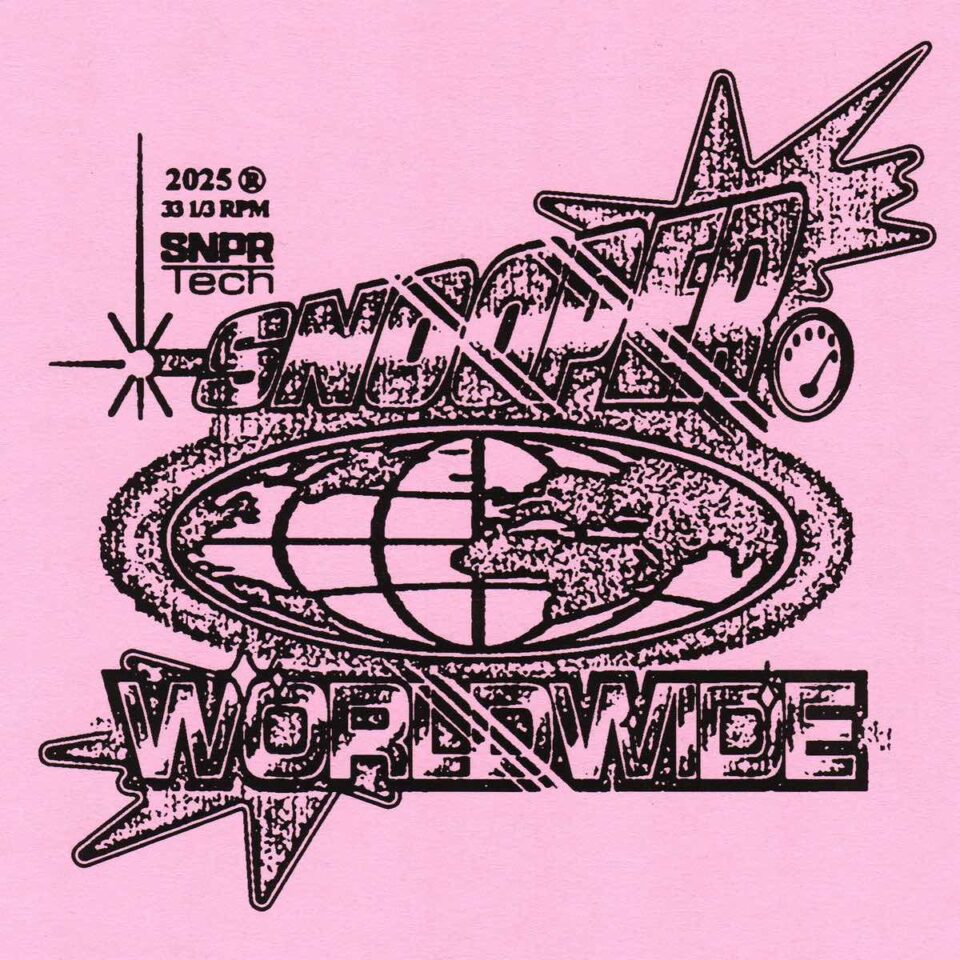Hotline TNT have a great band name: evocative, but not too obvious; bright and warm enough to mimic the group’s signature power-pop melodies shrouded in the heat of hissing feedback. They’re the kind of band that would’ve been college radio darlings in any era, immortalized on mixtapes to and from socially awkward reluctant romantics everywhere. Like the predecessors they evoke—fuzzed-out punks like Wire and Hüsker Dü who hid heartbreaking hooks and catchy choruses in distortion like buried treasure—Hotline TNT are a band who, as D. Boon’s immortal words go, could be your life.
Frontman Will Anderson formed Hotline TNT in 2018, following the dissolution of his slacker-gaze band Weed. Hotline TNT cultivated their homespun sound over a series of EPs and their 2021 debut album, Nineteen in Love, eventually catching the attention of Jack White’s boutique record label Third Man Records. Since then, they’ve released two more albums: 2023’s Cartwheel and Raspberry Moon from this past June. They’re well into a US tour in support of the latter, a record containing some of Hotline TNT’s most hard-hitting and tuneful songs to date.
We caught up with Anderson to discuss his band’s past and present, including removing Hotline TNT’s catalog from Spotify and defining their current sound.
I wanted to start by talking a little about your decision to remove your music from Spotify.
Hotline TNT wasn’t on Spotify for a really long time. We never, never had our music on any digital streaming platforms until we signed with Third Man. At the time, it just kind of seemed like, “Let’s try this out.” We were pretty adamant about keeping it off those platforms until it just kind of felt like the next logical step in growing the business of the band, I guess, and reaching as many people as possible. But that kind of exchange didn’t really feel worth it anymore, politically. So yeah, as a band, we just made the decision to cut out what we feel is the worst offender of these tech corporations in the music space.
What was the final nail in the coffin?
I would say it was the AI stuff. But honestly, seeing some other bands make this step was very encouraging for us to make the step, too. I hope the domino effect continues. I think a lot of people criticize it as virtue signaling or whatever, but I think it’s good to be loud and proud about it. We kinda always felt that it was a gross platform, and seeing that we’re not the only ones was kind of what led us to, “Let’s do this, too.”
Was there any pushback from Third Man or anyone on your team?
With Third Man, we had conversations where they kinda walked us through, like, “Hey, this is how the business is gonna change if we go through with this, financially.” Spotify, even at the rate they’re paying, is the biggest source of our digital income. So by removing it, it’s gonna take us longer to start seeing checks.
I’m not surprised that Third Man was in support of you removing your music from Spotify, given that Jack White is such a famously analog type of guy.
They’re in the business of making records. That’s their record label and record plants. And really, what we want to do as a band is put out physical copies of our record and sell it to people. That’s the business of Hotline TNT.
“Really what we want to do as a band is put out physical copies of our record and sell it to people. That’s the business of Hotline TNT.”
I’ve heard you guys described by other music critics as a “CDs band,” or specifically a “CD-in-the-car band.”
That’s cool with me. I mean, honestly, if you talk to anyone at Third Man, it’s been a constant back-and-forth of, like, “We need to make sure the CD is done right, ’cause it’s gonna be different than the record—it’s gonna have different liner notes, it has to be in a jewel case.” I definitely do care about that stuff a lot.
I wanted to talk about the EP compilations of the early, pre-album tracks [2019’s Fireman’s Carry and Go Around Me and 2022’s When You Find Out] and your decision to bundle those together and re-release them.
There’s a lot, a lot of comments in the YouTube videos saying, “I wanna buy this record of the old stuff; play the old songs, don’t give us the new shit” [laughs]. So we had to cave to the fans and reissued it as a compilation.
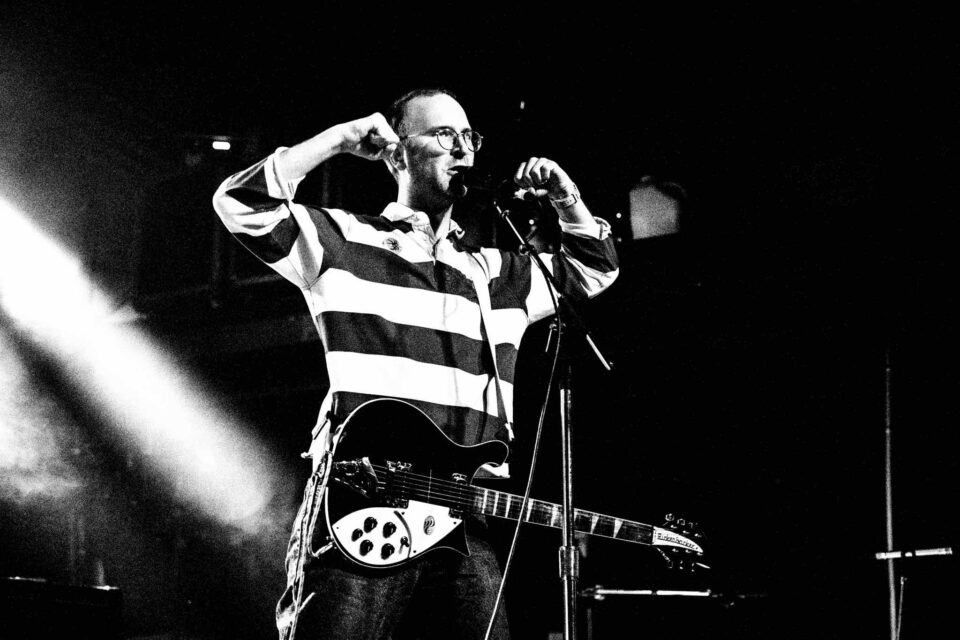
Do you have a favorite from that era?
Probably “Antonio.” Some of the really early stuff I find hard to listen to and play. I think most bands would relate to this. People will just latch onto the really early stuff, and I’m like, “Guys, we gotta move on.” It’s kind of a different style of music, honestly. But when we’re playing shows, the song “Are U Faded?”—which is, like, the second song I ever wrote for the band—automatically gets the crowd moving around. So I’m just like, “I guess I’ll just keep playing it.”
You’ve said that you don’t consider Hotline TNT a shoegaze band. How would you describe your genre right now?
If you put a gun to my head, I would just say we’re an alternative rock band. I don’t have a problem with people calling us “shoegaze,” but I don’t really think we’re that similar to other bands that I would’ve put in that category. It’s a funny word that people have just kind of used to describe loud guitar music in the 2020s.
You guys have been historically anti-gear, and take a pretty analog, bare-bones approach. How do you create that warped, distorted sound without using guitar pedals?
If there’s distortion on the amp, we just turn it all the way up. I do use one guitar pedal, which is a RAT distortion pedal, and that’s just very simple. I think most people in the audience—I mean, obviously there are some gear nerds studying the pedal board upfront—care or can tell the difference. As long as it’s loud and you’re playing the songs, the sound should cut through all the gear.
“I think people walk away from the shows feeling a little bit more impacted if they’re not just folding their arms and studying the pedal board.”
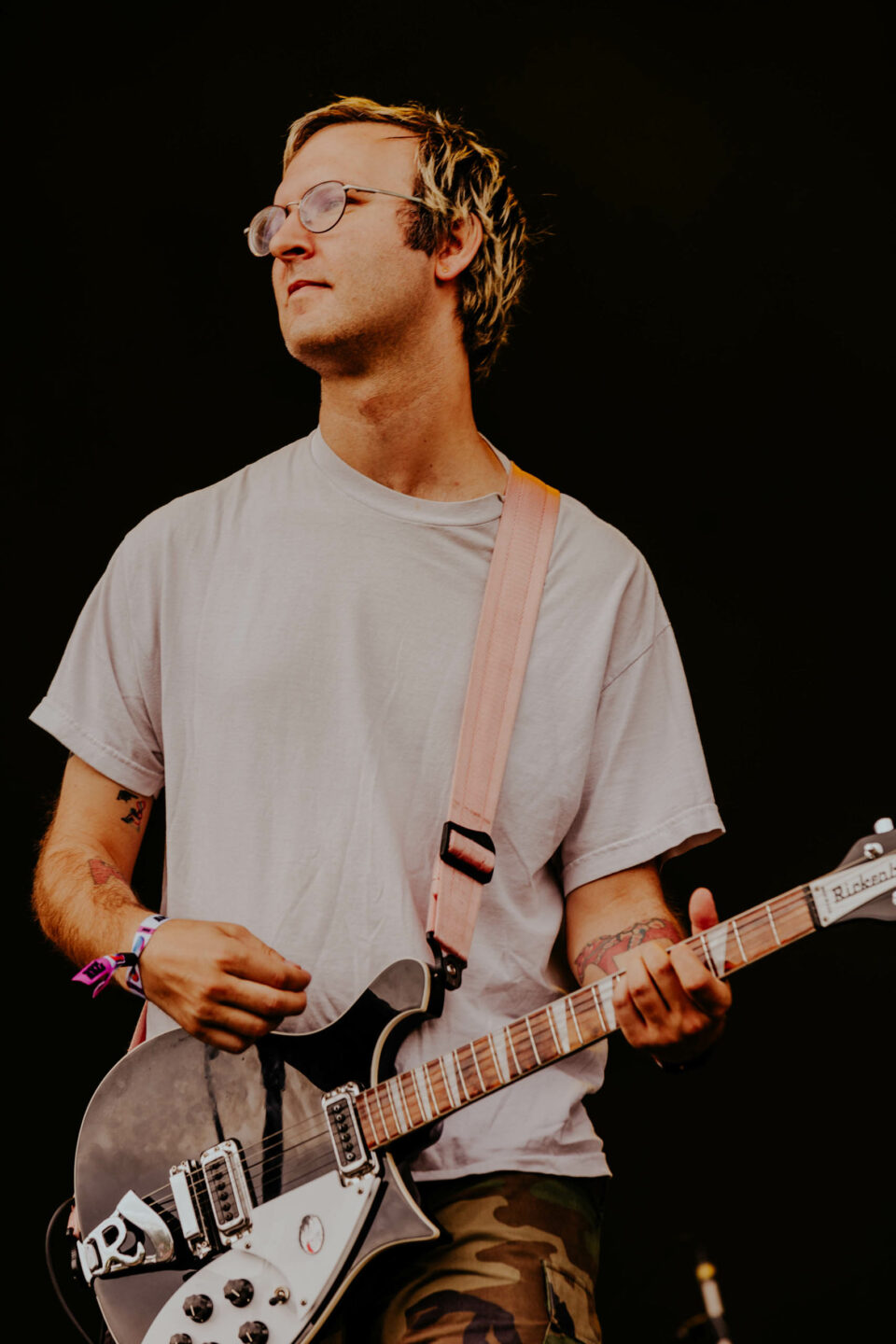
Hotline TNT
When I saw you play your Pitchfork Fest aftershow last year, I was surprised at how hard people were going in the pit. I wasn’t expecting a Hotline TNT show to be a big moshing scene. Is that generally how it is?
Ideally, yeah. We just played two nights in LA and I had to shame the crowd a little bit to get ’em moving. The experience of going to a show is generally more fun when people are moving around. Even if I’m not necessarily part of it, I can be a wallflower and enjoy it as a secondhand audiovisual experience. I think people walk away from the shows feeling a little bit more impacted if they’re not just folding their arms and studying the pedal board.
Hotline TNT feels like a very seasonally specific band to me. Nineteen in Love I associate so much with winter, it feels like such a dark, cold-weather album. And then Cartwheel feels like autumn—leaves falling, going back to school. Raspberry Moon feels very much like a spring album. There’s a warmth and awakening to it that feels very new. Does that resonate? And was that intentional?
It resonates, for sure. It wasn’t intentional, but I think about records a lot the same way and I’m excited to see what happens, ’cause I feel like albums can really live multiple lives. This album just came out in the middle of the summer and people haven’t experienced it in cold weather yet. Fall is my big season. I feel like I get more attached to music in the fall and in the winter, when I’m home and hunkered down a bit more and listening to music more intentionally. I think the music does lend itself to reaching people at different points, depending on the weather and the season.
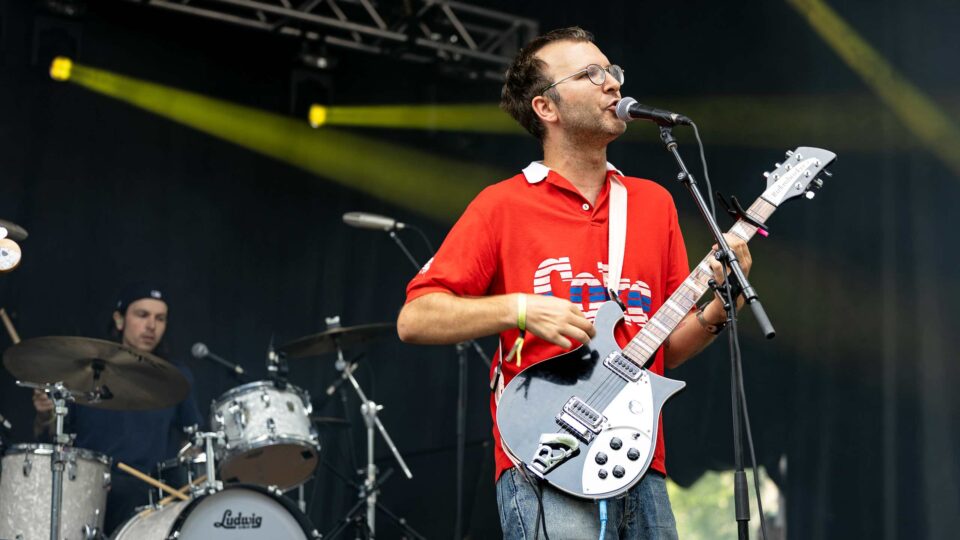
Raspberry Moon also feels more concise and lyrically sparse than previous records.
There’s a couple songs that are definitely pretty sparse. But there are some songs that I feel like have some of my best lyrics. I guess it doesn’t mean they can’t be concise.
You’re a very economical lyricist. There’s a lot of these short lyrical passages that condense a lot of feeling into very few words.
I don’t consider myself a master lyricist at all. The only thing I’m trying to do is what you just said: “Let’s get the earworm, let’s get like the phrase that people are gonna remember and sing at the shows.” I’m very different from someone like my friend Karly [Hartzman] in Wednesday, who writes the novel in each song. That’s great, and I can’t do that. I’m not trying to do that.
Do you tend to write lyrics first or music?
I would say usually I write a guitar riff first and then think up some kind of melody with gibberish lyrics to start, and then go from there. But some of my favorite songs that I’ve written have been lyrics-first. I don’t know why that is, but there’s probably one or two songs per record where I think of the lyrics completely separate from any music and build around that. And those always end up, in my opinion, being the best songs. So maybe I should be more patient and wait for those to come and do a whole album of those. FL






